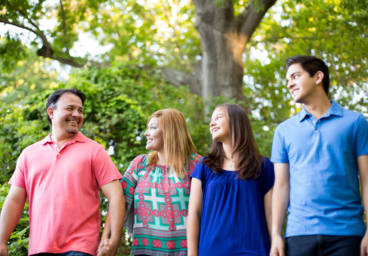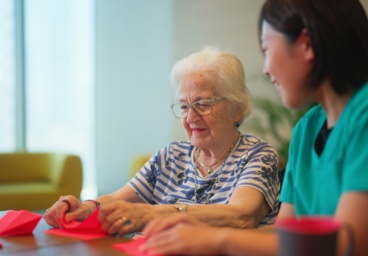April 1, 2021 News Release: Practicing COVID-19 Safety Measures for Spring Break and Religious Celebrations
Practicing COVID-19 Safety Measures for Spring Break and Religious Celebrations
Attending gatherings during Spring Break and observing religious or spiritual holidays are important to our overall well-being. If you plan to celebrate with others, the Tulare County Health & Human Services Agency wants to remind you to remain diligent in maintaining COVID-19 safety practices. Other states are seeing infection rates starting to increase again, and Tulare County wants to sustain the decrease in infections that has been achieved here.
Special events and holidays are significant,” Tulare County Public Health Officer Dr. Karen Haught said. “We understand the importance of maintaining some type of connection as we work our way back to normalcy. However, we strongly encourage residents to continue COVID-19 safety measures, even if you are vaccinated, because COVID-19 remains a health risk.”
Despite the more robust availability of vaccinations and the county’s emergence from the most widespread tier of COVID-19 spread, it remains extremely important that all residents continue to maintain safety precautions to prevent the spread of the disease, including masking and social distancing, until vaccinations are widely distributed. Residents must always wear a face mask or covering while in environments where physical distancing is not possible and while in public settings. In addition, everyone is encouraged to frequently wash their hands with soap and water for at least 20 seconds or use hand sanitizer, regularly disinfect high-touch surfaces, and stay home if you are sick or instructed to isolate/quarantine by a medical or public health professional.
Everyone can make holiday celebrations safer by:
- Getting vaccinated! Authorized COVID-19 vaccines can help protect you once you are fully vaccinated.
- Celebrating virtually or with the people you live with; if gathering with others outside of your household, then activities held outside are safer while maintaining social distancing and wearing a mask.
- Wearing a mask indoors and outdoors, making sure it covers your nose and mouth and it fits snugly against the sides of your face.
- Staying at least six feet away from others who do not live with you.
- Indoors or outdoors, you are more likely to get or spread COVID-19 when in close contact with others for a total of 15 minutes or more over a 24-hour period.
- Remember that people without symptoms or with a recent negative test result can still spread COVID-19 to others.
- Avoiding crowded, poorly ventilated indoor spaces. If indoors, open windows and doors if possible.
- Washing your hands often with soap and water for at least 20 seconds, especially after you have been in a public place, after blowing your nose, coughing, or sneezing, and before eating.
- Make sure to dry your hands completely, using a clean towel or by air drying.
- If soap and water are not readily available, use a hand sanitizer that contains at least 60% alcohol.
- Avoid touching your mask, eyes, nose, and mouth.
- Not attending gatherings if you feel sick; anyone with any COVID-19-like symptoms (fever, cough, shortness of breath, chills, night sweats, sore throat, nausea, vomiting, diarrhea, tiredness, muscle or body aches, headaches, confusion, or loss of sense of taste/smell) must stay home and not come into contact with anyone outside their household.
- Not attending any gathering if you know you have been exposed.
- Avoiding non-essential travel out of state.
What is considered fully vaccinated?
According to the Centers for Disease Control and Prevention (CDC), people are considered fully vaccinated:
- 2 weeks after their second dose in a two-dose series, such as the Pfizer or Moderna vaccines, or
- 2 weeks after a single-dose vaccine, such as Johnson & Johnson’s Janssen vaccine
- If it has been less than 2 weeks since your 1-dose shot, or if you still need to get your second dose of a 2-dose vaccine, you are NOT fully protected. Keep taking all prevention steps until you are fully vaccinated.
I am fully vaccinated; what can I do?
- You can gather indoors with fully vaccinated people without wearing a mask.
- You can gather indoors with unvaccinated people from one other household (visiting with relatives who all live together) without masks, unless anyone has an increased risk for severe illness form COVID-19.
- If you have been around someone who has COVID-19, you do not need to stay away from others or get tested unless you have symptoms.
- An exception would be if you live in a group setting and are around someone who has COVID-19, you should still stay away from others for 14 days and get tested even if you do not have symptoms.
Until more people are vaccinated and while we’re still learning how vaccines will affect the spread of COVID-19, the CDC recommends that you should still take steps to protect yourself and others.
I want to host a gathering; what can I do?
- Get fully vaccinated via one of the authorized vaccinations.
- Get tested for COVID-19.
- Have conversations ahead of time to understand expectations for celebrating together.
- Consider a smaller celebration by limiting the number of guests.
- Keep gatherings short, two hours or less.
- Continue to gather with people in the same households.
- Have extra unused masks available; encourage use of masks for everyone to wear inside and outside.
- Clean and disinfect frequently touched surfaces and items between use.
- If you gather indoors, make sure to maintain social distancing (6 feet or more) and have appropriate ventilation.
- Minimize self-serve items. Designate one or two persons who wash or sanitize their hands frequently and wear a face covering to serve the food and beverages.
What can holiday activities look like?
- Enjoy traditional meals with those who live with you.
- Practice religious holiday customs at home.
- Watch outdoor or virtual religious and cultural performances.
- Walk or drive around your community to wave to neighbors.
- Get your friends or family together and throw a virtual dance party.
- Volunteer, while maintaining safety precautions, to help others in need.
- Make crafts and decorate the house.
- Play charades and other games virtually.
- Tell stories, say blessings, and sing songs virtually.
- Make a signature recipe to create sense of a shared meal.
- Have a virtual dinner with loved ones.
- Make surprise Easter baskets for loved ones and drop them off.
- Have an Easter egg hunt in your neighborhood by hanging Easter eggs on your windows or door.
- Have an adult in the neighborhood wear an Easter bunny costume and wave to children from afar.
- Choose outdoor activities where it is easy to keep distance, like throwing a frisbee or setting up a bean bag toss.
For more information about COVID-19, visit www.tchhsa.org/ncov and www.covid19.tularecounty.ca.gov



